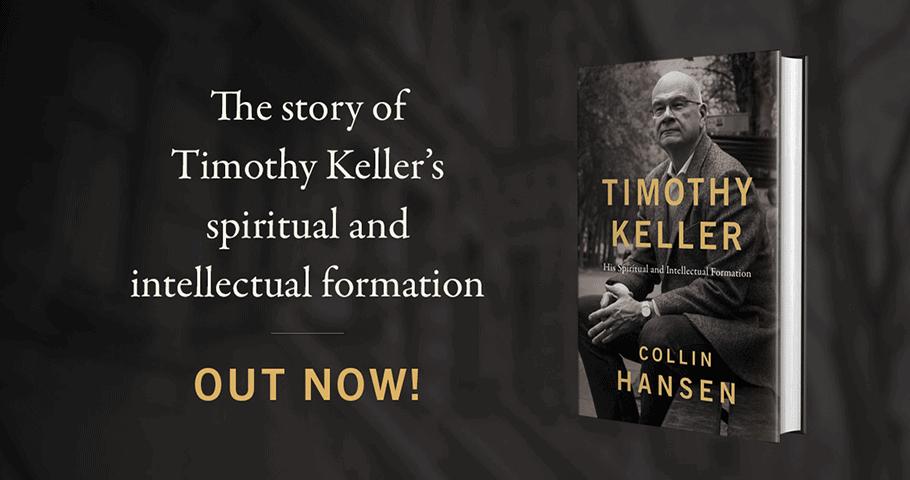This week the blog is sponsored by The Gospel Coalition. Timothy Keller: His Spiritual and Intellectual Formation is the story of the people, the books, the lectures, and ultimately the God who formed and shaped the life of Timothy Keller. With access to Keller’s personal notes and sermons—as well as interviews with family members and longtime friends—Collin Hansen offers a deeper understanding of one of the 21st century’s most influential church leaders. Visit www.timothykellerbook.com to purchase the book and access bonus content, including lectures, sermons, timelines, photos, and interviews.
If you woke Tim Keller in the middle of the night and asked him to quote any author because his life depended on it, he’d pick C. S. Lewis.
“It would be wrong not to admit how much of what I think about faith comes from him,” Keller wrote in The Reason for God.
His other primary influence, Jonathan Edwards, didn’t have the same gift for pithy insight. But no one outside Scripture contributed as much to Keller’s overarching theological framework as Edwards.
Keller coined the term “ecclesial revivalism” for how he tries to bring the spiritual dynamics of renewal inside the church. It’s a term that also applies to Edwards. Both sought to combine cutting-edge apologetics with pastoral ministry while preaching for changed hearts.
Keller openly admits how much he borrows from others, whether Lewis or Edwards or anyone else. Grounded in the gospel, Keller branches out for insight wherever he can find it. He’ll grab from John Stott’s preaching over here and Abraham Kuyper’s worldview over there. He’ll reach for new urbanism from Jane Jacobs and existentialist philosophy from Søren Kierkegaard. Leading up to 1989, when he planted Redeemer Presbyterian Church in New York, Keller assembled building blocks from Jack Miller and R. C. Sproul, Elisabeth Elliot and Barbara Boyd, Richard Lovelace and Harvie Conn, not to mention little-known pastors such as Kennedy Smartt. They helped convince him Redeemer could have it all: small groups with vocational training with evangelistic preaching with mercy ministry. The church could be intellectual but also pious, Reformed but not sectarian.
In a 2014 conversation with Don Carson and John Piper for The Gospel Coalition, Keller explained why it’s important to draw on multiple influences:
I would say if you don’t appreciate any of the Puritan writers, you’re missing out. There are some tremendous Puritan writers. But I also know people who only seem to care about the Puritans. They went into the Puritan forest, and they’ve never come out. It’s the only thing they read. And when they speak, and when they preach, they start, “Methinks.” I think the fact that you (Piper) and I have really learned so much both from C. S. Lewis and Jonathan Edwards, two people who almost certainly would not have gotten along, they’re so different, I think that has corrected me at a number of places where I get too much into one guy the other guy comes in and reminds me, “No, he’s not the only way.” It’s almost like if you cut a person, a good minister for example, like a tree, there should be a lot of rings.
Having one role model would be derivative. Having 100 means you’ve drunk deeply by scouring the world for the best wells. Keller himself has now become a role model to many church leaders. But future generations will honor Keller better by reading his library than by only reading the books he wrote. How ironic if the pastor who gathered from such varied tributaries became a solitary river flowing down the years.










